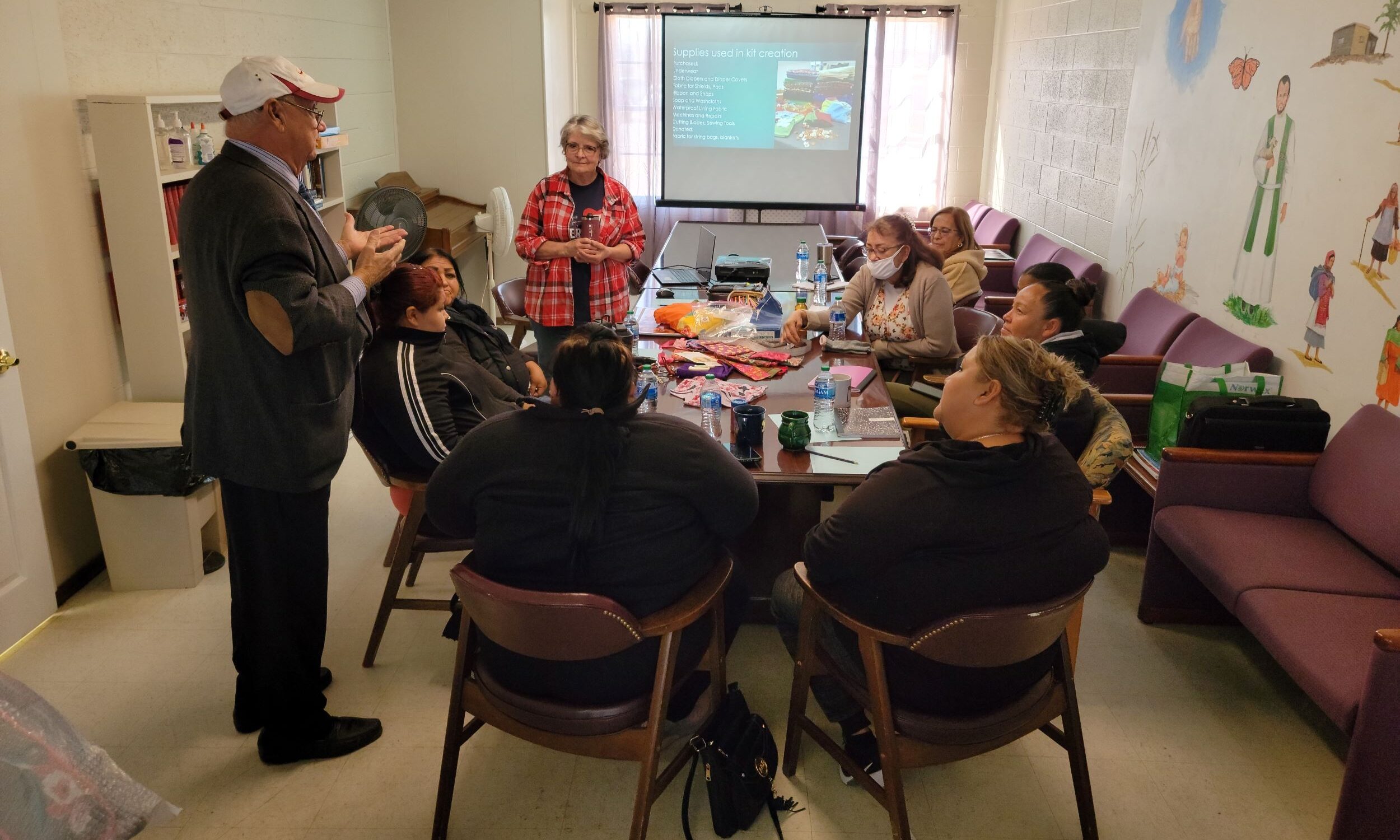Educating and Training
For three of the Mexico deaconesses, the experience of seeing a Days for Girls International workshop left them brainstorming of the many ways they could help their churches and communities learn and grow through the education of the health and protection of girls and women.

Women share about personal experiences, including the struggle in places like Cuba and the mountains of Chihuahua when it comes to feminine hygiene products
Kathy Carter, ARNP, from Lincoln, NE is part of Common Threads Ministry and has traveled around the world educating girls and women on their menstrual health, the importance of abstinence to prevent pregnancy and sexually transmitted diseases, and the danger of human trafficking. In conjunction with the Mexico deaconesses, she was able to bring this education workshop to a secondary school in Juarez, where all three deaconesses were exposed to information they weren’t taught about in school or by their mothers.
“For many years, talking about menstruation has been taboo,” one of the women who attended the first of three training sessions with Kathy, shared afterwards, “My mother never told me about my period, and now, no one talks about menopause.”
This was a common comment made by many of the women who attended the workshops and training. Even young women in their twenties, who studied in Mexico, shared how, though the information was in school textbooks, the teachers wouldn’t teach on it and their mothers wouldn’t tell them about it.
“We can see how important it is for this kind of education to be done,” Rosy Lira, deaconess for three of the Mexico missions, shared before the training session took place Friday morning, “Not just for the girls and women of our congregations and community, but also for the women in the Juarez prisons, who have little to no access to feminine hygiene products, for the migrant women who are houses in shelters, and for many others.”

Women at the Rescue Mission of El Paso also requested training on the Days for Girls curriculum and kits













